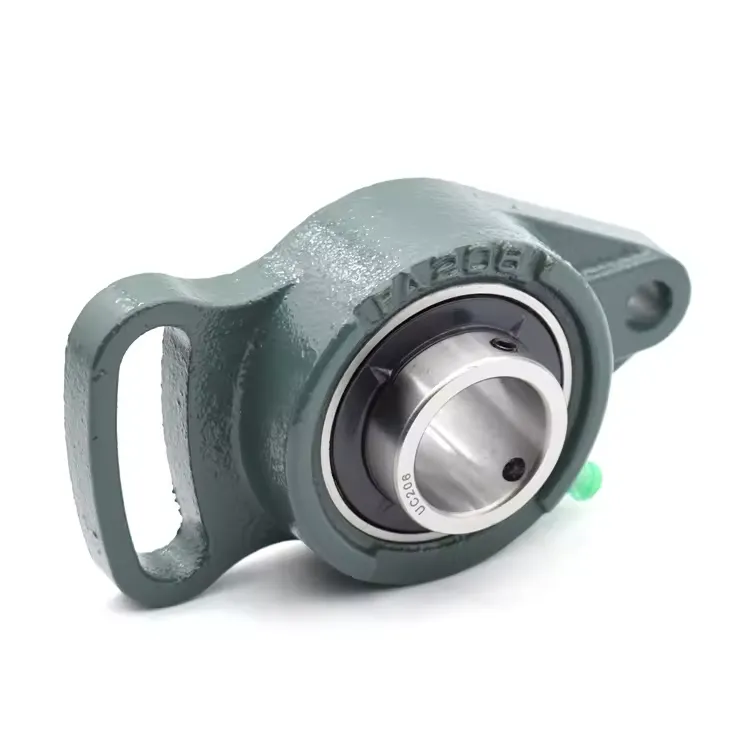Sep . 30, 2024 13:46 Back to list
Leading Global Manufacturer of Advanced Ceramic Bearings for Various Industries
The Global Landscape of Ceramic Bearings Manufacturing
In recent years, the demand for high-performance components in various industries has led to a significant increase in the market for ceramic bearings. These specialized components are known for their lightweight, high strength, and remarkable resistance to wear and chemical corrosion. This has positioned ceramic bearings as a pivotal asset in diverse applications ranging from aerospace to medical devices, automotive industries, and even high-end consumer electronics.
The Advantages of Ceramic Bearings
Ceramic bearings, primarily made from materials such as silicon nitride or zirconium dioxide, offer numerous advantages over traditional steel bearings. One of the most notable benefits is their lower density, which translates into reduced weight. This feature is particularly advantageous in aerospace and automotive applications where every gram counts, contributing to fuel efficiency and performance. Furthermore, ceramic materials exhibit exceptional hardness, making these bearings highly resistant to wear, which extends their service life and reduces the frequency of replacements.
Another significant benefit is their resistance to corrosion. Unlike steel, which can rust and degrade when exposed to moisture and chemicals, ceramic materials remain inert. This property is especially desirable in industries such as food and beverage processing, pharmaceuticals, and environments that require sterile conditions. Additionally, ceramic bearings can operate at higher temperatures, maintaining their structural integrity under extreme conditions, which is a vital factor in high-speed machinery applications.
The Rising Global Demand
The global market for ceramic bearings is projected to witness robust growth in the coming years. The expansion can be attributed to the rising demand for lightweight and durable components across various sectors. As industries continue to focus on enhancing performance, reducing emissions, and promoting sustainability, ceramic bearings are increasingly being recognized as a viable solution. For example, the automotive industry is shifting toward electric vehicles (EVs), which require lightweight and efficient components to optimize battery performance and extend driving range.
Moreover, advancements in manufacturing technologies, such as additive manufacturing and precision machining, are making the production of ceramic bearings more cost-effective and scalable. This has opened up opportunities for manufacturers to innovate and improve their offerings, catering to a broader range of applications. As a result, the market is witnessing the emergence of numerous players and a growing number of specialized manufacturers dedicated to this niche.
Key Players in the Market
world wide ceramic bearings manufacturer

Several companies stand out as leaders in the ceramic bearings manufacturing sector. These manufacturers embrace cutting-edge technology and invest heavily in research and development to stay ahead in the competitive landscape. Some of the notable players include
2. Enduro Bearings – Focused on the cycling and sporting goods market, Enduro specializes in high-quality ceramic bearings designed to enhance performance and reduce friction.
3. McMaster-Carr – A well-respected supplier known for its extensive catalog of mechanical components, including a range of ceramic bearings suitable for different applications.
4. ABEC Inc. – With a focus on precision bearings, ABEC is known for its collaboration with customers to create customized ceramic bearing solutions tailored to specific performance requirements.
Challenges and Future Outlook
Despite the promising growth of the ceramic bearings market, challenges remain. The higher manufacturing costs of ceramic materials compared to traditional steel can be a barrier for some applications. Additionally, the brittleness of ceramic materials poses a risk during handling and operation, necessitating careful design and engineering to mitigate potential failures.
Looking ahead, the future of ceramic bearings appears bright. The ongoing emphasis on innovation, coupled with rising environmental consciousness, will likely drive further adoption across various sectors. As industries push towards advanced manufacturing techniques and embrace the benefits of lightweight materials, ceramic bearings will play a crucial role in shaping the next generation of high-performance products.
In conclusion, the global ceramic bearings manufacturer landscape is evolving rapidly, driven by technological advancements and increasing demand across diverse sectors. The unique properties of ceramic materials make them ideal for a myriad of applications, ensuring that they will remain at the forefront of engineering solutions in the years to come.
Latest news
-
25MM 2 BOLT UCFLX05-14 Flange bearing unit( oval)
NewsMar.07,2025
-
4 bolt UCF 200 series Pillow block bearings
NewsMar.07,2025
-
25MM 2 BOLT UCFLX05-14 Flange bearing unit( oval)
NewsMar.07,2025
-
UCF216-50 4-Bolt Flange Housing Square Bearing
NewsMar.07,2025
-
25MM 2 BOLT UCFLX05-14 Flange bearing unit( oval)
NewsMar.07,2025
-
spherical roller bearing material exporter
NewsMar.07,2025





